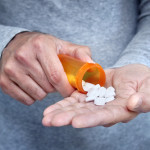Truth Be Told
My life flashed before my eyes as I read your article about dating and disclosure [“Daring to Declare,” February/ March 2004]. Perusing it, I relived my many botched attempts to hide my status or disclose at inopportune times. There are many disclosure scenarios, but no matter who we go to bed with, we always have to wake up with ourselves. I now rest with the knowledge that I manage to disclose—for myself and for others.
--Andy Ansell Minneapolis
Everyone should share his or her HIV status with a potential partner shortly after meeting. But here in Norfolk, Virginia, if you tell someone you’re positive and word gets around, no one wants to date you. If you do get a chance to meet a possible love interest and you tell them you’re positive, they’re gone. Rejection is like a knife through the heart, but if you disclose, at least you can be up front when deciding whether or not to use a condom.
--Anthony Bosnengo
Norfolk, Virginia
Code Blue
In “The Great Depression” [February/ March 2004], Cal Cohen, MD, and Alan Schwartz, MD, dismiss any link between Sustiva and depression by citing their own opinions of the drug’s effect. Their comments confirm my suspicion that too many doctors don’t listen to their patients or have a built-in bias when it comes to understanding side effects. My suggestion for both of them is to shut up and listen to their patients—or better yet, to try this awful drug themselves.
I can’t help wondering how many dinners Sustiva-pushing drug reps have hosted for these good docs. It is physicians like Cohen and Schwartz who have me listening to fellow HIVers and checking a multitude of sources before I agree to swallow any medications.
--Bob D.
Tumwater, Washington
Sex and the Survey
I took your little sex survey [“The Naked Truth,” February/March 2004], but I feel it discriminates against us virgins. I’m one of many young men (19 years old, to be percise) who are saving sex for marriage. My Seventh-Day Adventist Christian religion has influenced my decision. I don’t even masturbate—thus I’m 100 percent virgin. I don’t have AIDS and hopefully will never get it because of the way I live my life.
--Tim Brown
Huntsville, Alabama
Working for the Weakened
I really hope that the 65 percent of POZ poll respondents who said formerly sick HIVers should return to work rather than collect disability checks [“POZ.com Poll,” January 2004] took the time to read Joe Westmoreland’s “Bed Head” column in the same issue. Like Westmoreland, I’ve tried many things to combat my fatigue, but there are very few plans that I can set in stone. I require a great deal of sleep and tire easily. What kind of work do these voters feel I’m qualified to do, and can they give me the names of employers who would be able to work with me and my fatigue-dominated schedule?
--Name Withheld
Via the Internet
Getting Testy
After fighting for my life and the lives of loved ones for the past 19 years, I have begun to think that mandatory testing could be what we need to slow HIV transmission [“Prevention for Positives,” January 2004]. The stigma of having HIV ain’t what it used to be and prevention methods need to change, so if the CDC wants mandatory testing—I say go for it!
Of course, no one should try to slip testing in on us unawares in the name of “routine medical care,” which it is not. As Walt Odets asserts, the CDC is attempting to shift prevention into enforcement mode. But, unlike Odets, I believe it should do so openly, addressing privacy issues, mandatory counseling and continued insurability for those who test positive. Prevention is everyone’s responsibility. It’s much easier to make better prevention choices if you have all the available information.
--Richard Broussard
San Francisco
Med Maverick
In the January 2004 publisher’s letter, Brad Peebles described my recommendation that he take hydroxyurea (HU), a drug that the Health and Human Services Guidelines say doctors should not offer at any time. But as a physician dedicated to the long-term survival and quality of life of my patients, I felt that HU could significantly help Brad’s ongoing health. One year later, this has proved to be the case.
Currently, we need new treatments to help patients overcome resistance and to alleviate drug-related toxicities, but unfortunately, the guidelines panel has ignored substantial evidence, including studies published in leading medical journals, to come to a faulty conclusion about HU. I hope POZ readers will continue to take a more critical look at how treatment decisions are influenced and made.
--Paul C. Bellman, MD
New York City
Send letters, including name, address and daytime phone number to: The Editor, POZ, One Little West 12th St., 6th Floor, New York City, New York 10014; or e-mail us at: letters@poz.com. Printed letters may be edited as well as posted on the POZ website, www.poz.com. We regret that we cannot answer all mail.






Comments
Comments